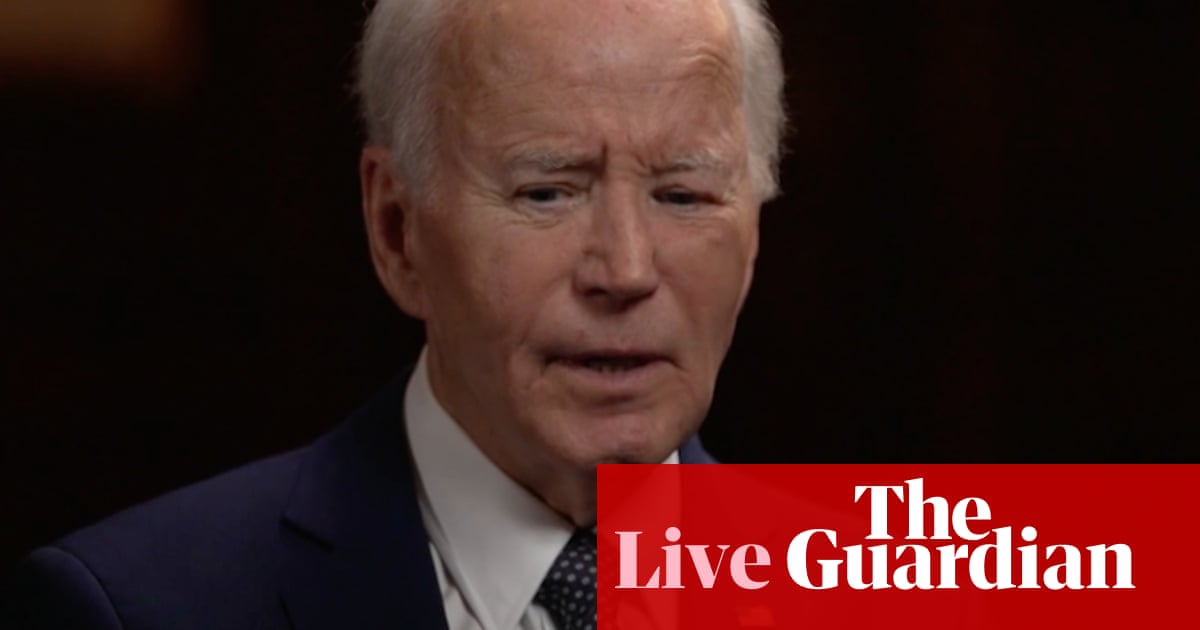Biden’s Warning: The Implications of Trump’s Foreign Policy on U.S. Leadership
Rise of Modern-Day Appeasement
In a striking and impactful interview, former President Joe Biden critiqued Donald Trump’s foreign policy, characterizing it as a form of "modern-day appeasement." He expressed particular concern for U.S. relations with Europe and how Trump’s approach could lead to a significant decline in confidence among American allies. This term resonates deeply, drawing parallels to historical figures like British Prime Minister Neville Chamberlain, who attempted to appease Adolf Hitler in the 1930s. Biden underscored the belief that appeasing authoritarian regimes would only embolden them, a sentiment that carries weight in current geopolitical discussions.
Confidence Erosion in American Leadership
Biden emphasized that under Trump, Europe might begin to question its reliance on American leadership. He articulated a fear that U.S.-European relations could deteriorate, warning that such a breakdown would fundamentally alter the course of modern history. This concern isn’t merely academic; it goes to the core of international stability and alliance-building. As global dynamics shift, allies may start asking pivotal questions: "Can I rely on the United States? Are they going to be there for us?"
The Historical Context of Appeasement
Biden’s reference to historical appeasement is significant. It evokes a time when Western powers failed to confront totalitarian aggression, leading to catastrophic consequences. By linking Trump’s policies with this historical precedent, Biden is framing a narrative that emphasizes the need for vigilance against emboldened authoritarian regimes. This historical perspective isn’t just about looking back; it serves as a warning for current and future policies regarding relations with countries like Russia.
The Threat of Misguided Concessions
During the interview, Biden specifically called out Trump’s proposals regarding territorial concessions to Russia, suggesting that they were naive at best. Biden stated, "Anyone who thought the Russian president would stop if Kyiv conceded territory is just foolish." This statement isn’t just a critique of Trump’s foreign policy but also a call for a more robust and strategic response to geopolitical aggression. The implication here is clear: giving in to territorial demands may not yield peace, but rather sow the seeds for further conflict.
Feelings of Uncertainty Among Allies
Biden articulated a sense of fear that allies would start doubting the historical reliability of the U.S. This leads to a wider issue; if countries no longer see America as a steadfast ally, it could destabilize not just U.S. relationships, but global alliances as well. In an era where diplomatic alliances are vital for tackling issues like climate change, security threats, and economic challenges, such uncertainty could lead to fragmented global governance.
An Environment of Doubt
The ramifications of this diplomatic uncertainty extend far beyond Europe. Allies around the world may begin to question whether the U.S. will continue to serve as a reliable partner. Biden’s concerns echo a sentiment heard among various world leaders who worry about America’s shifting priorities.
The Impact of Isolationist Policies
Trump’s isolationist policies, including notions of territorial claims like taking back the Panama Canal, reflected a significant departure from traditional U.S. diplomacy. Biden condemned these ideas, labeling them as “beneath America,” which raises important questions about national identity and leadership in international affairs. The rhetoric signifies a shift in how the U.S. is perceived globally, particularly by nations that depend on American support for their own security and economic interests.
Current Events in the Global Economy and Politics
As Biden and his team work to reaffirm the U.S.’s global leadership, other significant events are unfolding on the international stage. U.S. Treasury Secretary Scott Bessent and Chief Trade Negotiator Jamieson Greer are scheduled to meet with China’s economic leader in Switzerland, indicating that economic tensions remain high. These meetings could lay the groundwork for resolving a trade war that has affected global markets and supply chains, emphasizing the interconnectedness of diplomacy and economic policy.
In summary, Biden’s reflections on Trump’s foreign policy provide a framework for understanding the current trajectory of U.S. leadership on the world stage. As global dynamics evolve, the implications of these relationships will not only shape U.S. foreign policy but also the stability of international relations as a whole.


